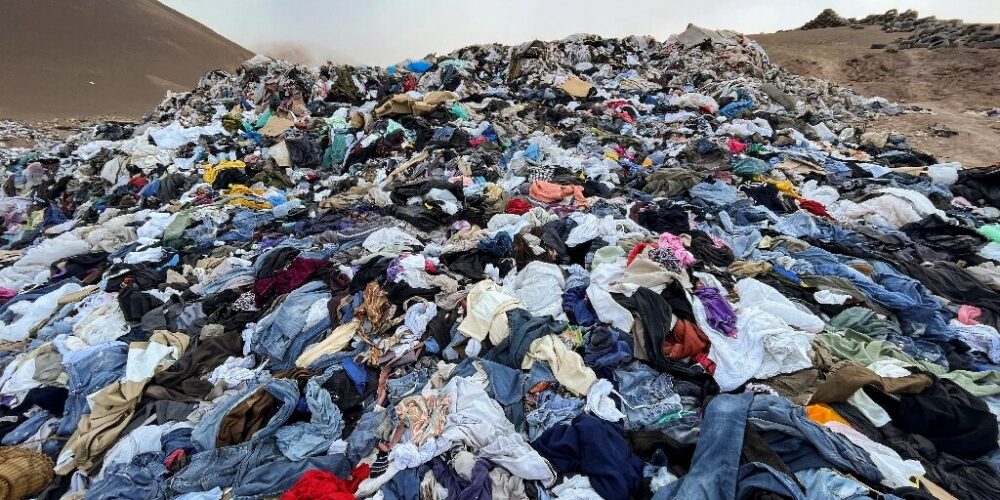My ten-year-old granddaughter announced to me recently that she was going on her first shopping trip with her mother. Apparently it was a counterbalance to a trip her younger brother had to Manchester to see Man U (as those in the know call them).
I enquired, playfully, what type of shopping it was. She informed me that it was an important shopping trip for (wait for it) her “autumn collection.” At ten years old! It instantly struck me that the marketing people have her in their net already.
I decided I would probe a little, just for the fun of it. “And what about your winter collection? Will you be going shopping then too?”
“Well, maybe if I need them, or if I don’t have the winter style,” she said. So now there were two hooks from the marketeers: the seasonal change of clothes, and the style factor. And when I asked if there was such a thing as a “spring collection” and “summer collection”—“Yes, of course there is, Papa” (Granda), she quipped and smiled benignly at me.
When I probed further about who decided that there should be autumn, winter, spring and summer collections she crumpled her face and said, “Sure it just is, Papa. Everyone knows that.”
I was becoming a bore at that point, so I quit while I was ahead.
But it is an interesting, if disturbing, revelation about the effectiveness of marketing and the ultimate—but not the only—outcome of consumerism.
It will not be very long until the fashion bug and the oft-quoted “retail therapy” take over the thinking of children at increasingly earlier ages. No doubt it has already. Both are just master strokes from the marketeers, who, along with the manufacturers, fashion houses and myriad of clothes retailers, have drilled right into the psyche of young and old about what they “must” have—or, equally, must not have.
They must fit in and be part of the style, colour and seasonal changes. It’s a never-ending treadmill for the fashionistas.
Of course this is equally true of all consumer items. The phones, the cars, the furniture, the houses, and even the holidays—all are sold as “must haves,” with all the possible “tweaks to difference” implemented to make them either more desirable or, better still, obsolete. Either way it’s a profit for an unending chain of vultures. The marketing psychology behind all this is mind-blowing.
From the left viewpoint we see this “consumerist debauchery” as a travesty. Millions on top of millions of people are exploited at the production and retail stages alone to satisfy this ever-increasing market—not to mention the catastrophic climate effects.
Later on I began to wonder if it was possible to get my granddaughter not to be a “blinded consumer.” The more I thought about it the more I began to realise that this tsunami of consumer goods and consumers was not going to be simple to change or likely to go away any time soon.
Socialists and communists rail against the consumer industry. And while it appears that there is a justifiable case for that, it began to dawn on me that there might just be another side to the story.
What would happen if we owned the means of production and distribution?—had a house that had a minimal rent, free education, and a free health service, and the income of all workers was, say, doubled or trebled. We would clearly be much better off and have a lot more disposable income to spend—but on what? Surely we don’t want to fight for a bigger share of the pie and then stop consumerism?
To add to my dilemma I realised that socialist countries, such as China and, increasingly, Vietnam, produce a lot of this stuff. Granted that Ireland is only a tiny fraction of their production, if the “reduction concept” of consumerism was applied on an increasingly global scale it would create a disaster for their production. So it appears to be production versus consumerism.
And culturally we might now have a major battle on our hands. What happens in the new socialist Ireland if the people demand more consumer goods, not less, through their needs, wants, and desires? Better still, if they could afford them and would have a lot more free time as well? To resist consumer demands could well result in what the American sociologist Daniel Bell referred to as a “revolution of rising entitlements.”
Capitalists already restrict our needs, wants and desires but continue to accumulate for themselves. Surely that’s not what our struggle is about?
Socialists and communists mostly use the critical theory approach to attack consumerism and, by extension, to attack capitalism. However, Marx (in Grundrisse) took a wider view and saw the “great civilising influences of capital” in relation to consumption and the expansion of needs. He went further when he wrote that
these objects are objects of his need, essential objects, indispensable to the exercise and confirmation of his essential powers. To say that the human being is a corporeal, living, real, sensuous, objective being with natural powers means that he has real, sensuous objects as the object of his being and of his vital expression, or that he can only express his life in real, sensuous objects.
And on production:
Production thus produces not only the object but also the manner of consumption, not only objectively but also subjectively. Production thus creates the consumer. Production not only supplies a material for the need, but it also supplies a need for the material . . . Thus production produces consumption (1) by creating the material for it; (2) by determining the manner of consumption; and (3) by creating the products, initially posited by it as objects, in the form of a need felt by the consumer.
It is still difficult not to be opposed to what is often termed created or artificial or false, even superficial, needs being created just for the business class to exploit and profit from. Does this rampant consumerism change people’s attitudes to humanity? Does it reinforce the individualist mentality?
The trail from natural resource to consumer is filled with inequalities and exploitation. It causes stress and depletes mental health. Could it be considered the genesis of the rat race—the “we must have” mentality? The wealthy have access to their high levels of consumption; should the working class not have access too?
I may have to go back to my granddaughter and see if I could enlist her help with a higher form of communism, defined as consummunism!






